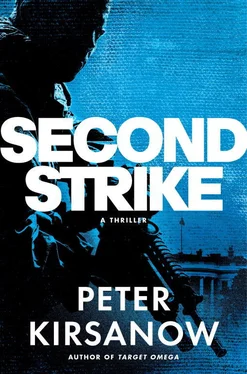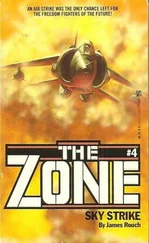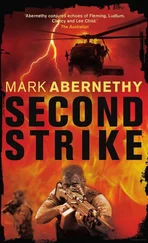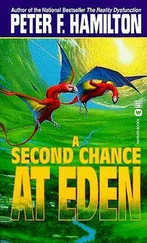Randy told Ruth that the scary/friendly guy didn’t buy from Roberts but may have gone to see Rob Brock. No, he didn’t have Rob Brock’s number, but he gave her a description of the scary/friendly guy, as best as he could remember. Randy felt good about it, even felt a little proud of himself.
Ruth thanked him politely and ended the call and looked at the piece of paper on which she’d written all of Randy’s information. Rev. Broussard saw the look on her face, came over, and patted her shoulder. Ruth looked up. “I don’t know what else to do. The car lot didn’t sell to the man I believe killed Amos, Reverend.”
Rev. Broussard glanced at Amy’s computer screen and bent to get a closer look. He pointed at the map depicting Roberts Car and Truck Sales. “Is this the dealership?”
“Yes, it is. But they sent Amos’s killer to someone else.”
Rev. Broussard continued gazing at the screen. “That’s Holy Redeemer there.”
Ruth looked at the icon to which the reverend was pointing.
“That’s Pastor Luke Quinn’s church. We were in seminary together. I see him at retreats pretty regularly and we stay in touch.”
Rev. Broussard nodded pensively. “Ruth, may I use your phone?”
Ruth pointed to the wall phone in the kitchen, and moments later Rev. Broussard was in conversation. Ruth saw him brace the receiver between his ear and shoulder as he wrote on the notepad hanging next to the phone. Then he hung up, redialed, and a minute later was writing again. A minute after that he came back to Ruth.
“Pastor Luke’s parishioner Rob Brock’s been trying to sell a Windstar and a Caprice for the longest. He finally got a buyer.”
Rev. Broussard handed Ruth a page from the notebook.
That scary-looking man was going to jail if Ruth Ponder had anything to say about it. That was for sure.
NORTHERN VIRGINIA,
AUGUST 16, 9:18 P.M. EDT
Bulkvadze had been Abkashvili’s man on the East Coast for nearly a decade. During that time he had lived in Boston, New York City, Newark, and Washington, D.C. He hated the latter’s weather most.
He stood next to his Mercedes on a short dead-end drive bounded mostly by wooded lots with a sprinkling of residences at the far end. The developer had seen promise in the location, but financing had run out after a few houses had been constructed.
The drive was two blocks from the safe house that Mike Garin was probably watching at this very moment.
Bulkvadze had done a light reconnaissance of the perimeter of the area before parking his car at the isolated, wooded end of the drive. Although he hadn’t seen Garin in the area—he’d stayed well outside of the sight lines of the safe house to avoid being seen by him—he had a fair idea of where Garin might position himself. There were only two decent vantage points for surveillance: the woods behind the house—and Bulkvadze concluded that for obvious reasons Garin would avoid that area—and a playground in front of the house. He planned to approach the playground from the rear; uninspired, but success, not creativity, was his primary concern. Optimally, he’d spot Garin, advance from behind to within firing range, shoot him as many times as necessary, and photograph the corpse with his cell. Then he’d send the photo to Bor.
The humidity had risen over the last few hours and the heat remained oppressive. Bulkvadze took off his black sport coat and laid it on the passenger seat of his car before locking it. He pulled his T-shirt, also black, over the Taurus stuck in his waistband and walked slowly in the direction of the playground.
By the time he reached the portion of the drive with residences, his plan immediately got more complicated. The owners of the house on the right side of the drive nearest the rear of the playground were hosting a gathering of some sort. Whatever it was, there were at least fifty people in the backyard and the chatter was low and the music tranquil, low and tranquil enough that the sound of gunfire from the nearby playground would easily be heard. Worse, parked among the guests’ cars were two police patrol cars. Clearly, they weren’t there to address a noise complaint. They were probably friends of the family, briefly dropping by to wish whomever well.
And Bulkvadze had no suppressor to attach to the Taurus. He hadn’t planned on being a shooter. He’d had five men to do just that. If only he’d brought ten.
But Bulkvadze had to kill Garin. Right away. Or Bor would kill Bulkvadze. He wouldn’t get another opportunity; that was clear. He had to locate Garin and do it now.
If he shot Garin, the people at the gathering, including the police officers, would hear the sounds crack through the still, humid air. He couldn’t then run back past the house to his car. Nor was there any way for a man of his massive dimensions to hide or look inconspicuous. He’d be caught or shot almost immediately.
Bulkvadze had to find Garin and kill him by hand. The decision was simple. The act might not be.
Bulkvadze, however, had the advantage. He was expecting to find Garin; Garin wasn’t expecting Bulkvadze. Bulkvadze had killed before by hand, and fairly adeptly. He dwarfed Garin and undoubtedly was far stronger.
And Bulkvadze was motivated.
Bulkvadze moved past the house with the gathering and past two more before coming to where the drive turned to the right and proceeded westward. Bulkvadze continued straight to a row of pines that bordered the rear of the playground.
The giant stopped behind one of the pines and looked about the playground for signs of his quarry. To Bulkvadze’s left was a baseball diamond, the backstop almost fifty feet from where he stood. To his right was another field—probably for football or soccer, although there were no goals. Along the right sideline of the field was a row of low-rise bleachers no more than six feet high. High enough, however, to obscure an advance to the far end of the playground, where there stood an array of standard playground equipment and what appeared to be a very wide sandbox. About three feet to the right of the sandbox was a wooden fence, the kind Bulkvadze had seen surrounding trash receptacles next to the drive-through at fast-food places. Standing behind the fence, at its right-hand edge, was a figure with its back to Bulkvadze.
Garin. Even in the gloom of the evening and from nearly one hundred yards Bulkvadze recognized the wide shoulders tapering to a narrow waist. One hundred pounds lighter than Bulkvadze. Five inches shorter. Focused on the house some distance beyond. Oblivious to the big man’s presence.
Bulkvadze moved farther to the right, until he was behind the bleachers. Were Garin to look back for some reason, the stands would shield Bulkvadze from view. He could walk the length of the field behind the stands and it would take him fifteen to twenty feet behind Garin. That would take a minute. Closing the remaining distance and snapping Garin’s neck would take a few seconds more. After a quick series of photos, he’d hit send and then walk back to his car. All that would remain would be dealing with Abkashvili. Not a problem. He knew Abkashvili, given a choice, would gratefully accept nearly one million dollars rather than deal with Bor.
Bulkvadze walked behind the stands in a slight crouch, pausing every ten yards or so to check Garin’s position. Bulkvadze could feel his heart begin to beat more rapidly and his muscles tense and flex involuntarily, much like a power lifter preparing for a maximum dead lift. An intense, brutal move—all the strength in his body summoned and channeled toward a single effort.
Bulkvadze came to the end of the bleachers. He was close enough to see the movement of the gun stuck in Garin’s back as his lungs expanded and contracted with each breath. Bulkvadze paused, gathered himself, and crept to within five feet of his target. Then he burst forward with his right hand outstretched, ripped the gun from Garin’s trousers, and flung it out of reach. Simultaneously, he clamped his left arm around Garin’s neck in a choke hold, nearly lifting the smaller man off the ground in the process.
Читать дальше












